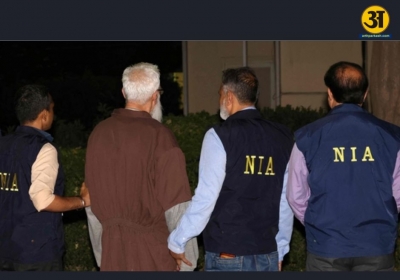
The US stated that dialogue may still settle the dispute with Russia over Ukraine
To resolve Ukraine-Russia dispute, diplomacy still an option: US
The US stated that dialogue may still settle the dispute with Russia over Ukraine, but that the risk of a Russian invasion was strong enough to necessitate the withdrawal of US embassy personnel from Kyiv.
Following Washington's warning that Russia's military, which has more than 100,000 troops massed near Ukraine, may attack at any time, US Secretary of State Antony Blinken spoke with Japanese and South Korean colleagues on Saturday. Moscow denies any such intentions exist.
There has been no hint of a resolution in weeks of growing tensions despite a flurry of meetings and phone calls between top Western and Russian officials.
On Tuesday, Germany's Chancellor Olaf Scholz will meet with Russian President Vladimir Putin, but a German source said Berlin does not expect "concrete results" from the meeting.
Scholz will make it plain that the West was united, and that any aggression would result in "painful, considerable sanctions" against Russia, according to the source.
Blinken said, "The diplomatic path remains open. The way for Moscow to show that it wants to pursue that path is simple. It should de-escalate, rather than escalate."
President Joe Biden cautioned Russian President Vladimir Putin in an hour-long phone discussion on Saturday that any invasion of Ukraine will result in enormous pain and isolation for Moscow.
The call was substantive, according to a senior Biden administration official, but no significant changes were made.
Putin warned Biden, according to the Kremlin, that Washington had failed to address Russia's core concerns and that it had received no "substantial answer" on crucial security issues.
Putin is seeking guarantees from the US and NATO, including delaying Ukraine's admission to NATO, refraining from missile deployments near Russia's borders, and reducing NATO's military infrastructure in Europe to 1997 levels.
Many of the recommendations are non-starters for Washington, but it has pushed the Kremlin to consider them with Washington and its European allies.
High-end risk
Due to the possibility of an invasion, Washington, along with its Western allies and many other countries, ordered the majority of its embassy workers to leave Ukraine immediately on Saturday.
In Honolulu, Blinken stated, "We ordered the departure of most of the Americans still at the U.S. embassy in Kyiv. The risk of Russian military action is high enough and the threat is imminent enough that this is the prudent thing to do."
Many of Washington's European allies and others have reduced or evacuated employees from their Kyiv offices, urging residents to leave or avoid visiting Ukraine.
According to a Reuters witness, US workers at the Organization for Security and Cooperation in Europe (OSCE) began departing the rebel-held city of Donetsk in east Ukraine by car on Sunday.
The OSCE has activities in Ukraine, including a civilian monitoring mission in Russian-backed self-proclaimed separatist republics in the Donetsk and Luhansk areas, where the war began in 2014 and has killed over 14,000 people.
In the midst of the conflict, KLM, a Dutch airline, said that it would stop flying to Ukraine, and Lufthansa, a German airline, stated it was considering stopping operations.
Mykhailo Podolyak, a presidential adviser, stated that regardless of what airlines choose to do, Kyiv has no intentions to limit its airspace because doing so would be "a kind of partial blockade."
Following a phone discussion between French President Emmanuel Macron and Russian President Vladimir Putin on Saturday, a French presidency official said there were no indications from Putin's conversation with Macron that Russia was planning an invasion against Ukraine. However, the official stated that Paris was "extremely vigilant."
Ben Wallace, the British defence secretary, warned against placing too much faith in the negotiations, saying there was "a whiff of Munich in the air from some in the West," referring to a 1938 deal that failed to stop Adolf Hitler's German expansionism.
"The worrying thing is that, despite the massive amount of increased diplomacy, that military build-up has continued," the Sunday Times of London quoted Wallace as saying.
Also read: If Russia attacks Ukraine there will be repercussions says Biden





